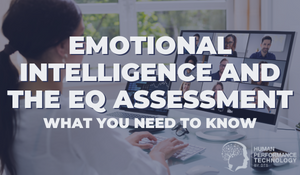Book Review: Emotional Equations By Chip Conley
Emotional Equations: Simple Truths for Creating Happiness + Success“Emotional Equations” contains simple mathematical formulas that illustrate universal truths to help us understand how to generate more (or less) of certain emotional states. (There are 17 equations in total). It is important to keep in mind that these equations are not intended to be a definitive summary or any kind of scientific critique on emotions, but are more like a useful series of personal insights that should be understood in the context of the author’s experience as a business leader.
Conley is a well-regarded U.S. entrepreneur who founded “Joie de Vivre Hospitality” (America’s 2nd largest boutique hotel chain), which he ran for nearly 24 years. During the global recession, he went through a high level of stress and anxiety, which he noticed was having a big impact on him and his team.
Conley recalls that at the time he was reading Viktor Frankl’s landmark book, “Man’s Search for Meaning,” and he turned that into an equation that ultimately became his favourite mantra: Despair = Suffering – Meaning. He realised that suffering is a constant in life (the first Noble Truth of Buddhism), and that meaning was the variable where he needed to focus his attention. This small insight, he believes, is something that saved his life, which is explained in more detail in the book.
Then, one day, during a leadership series that he was facilitating for senior managers in the company, knowing that everybody was suffering from the financial crisis, he decided to discuss his own vulnerability and worries and introduced the “Meaning” equation to the group. The managers seemed to respond well — they started texting and tweeting it to their staff, and next thing he knew, they’d asked him to teach a whole class on emotional equations. This became the catalyst for the book.
A few of the equations include:
Despair = Suffering - Meaning
Despair results when suffering has no meaning. It is impossible to go through life and avoid pain — some degree of suffering is virtually a constant, but it’s best to place your attention on growing your sense of meaning in order to decrease your feeling of despair.
Disappointment = Expectations - Reality
In the mid-1990s psychologists conducted an exhaustive American/German survey of the frequency and intensity of people’s emotions. Of thirteen unpleasant emotions (including guilt, loneliness, embarrassment, and sadness) disappointment was, by far, the emotion that scored the highest intensity among those surveyed. Other studies have shown that disappointment can be highest right around midlife, when what we’d hoped to accomplish doesn’t measure up with the reality of what we’ve achieved.
Anxiety = Uncertainty x Powerlessness
Why multiply these two factors, as opposed to just adding or subtracting? Because the product of what you don’t know (uncertainty) and what you can’t control (powerlessness) has a more combustible effect. Research has shown — and your own personal experience may bear this out — that the scariest things in life aren’t just the mysteries you face. It’s even scarier when those uncertainties are matched by an ample amount of fear that you aren’t well prepared for or powerful enough to address. In this case, trying to bring either your sense of uncertainty or your powerlessness closer to zero will have a big impact on the amount of anxiety you feel.
Flow = Skill ÷ Challenge
Proposed by Hungarian Psychologist Mihály Csíkszentmihályi, flow is the mental state of being fully immersed in an activity — a feeling of energised focus, full involvement, and enjoyment in the process, where time seems to fly. This state is produced when our skill level is being stretched toward its limits by a challenge.
How Can “Emotional Equations” Help Us in Business?
“The psychologist Daniel Goldman has shown that emotional intelligence (EQ) makes up two-thirds of the likely success of business executives, compared with intellectual capacity (IQ), which, along with the amount of working experience, makes up only one-third.” — Emotional Equations p14
The most successful business people have strong emotional intelligence and the foundation component of EQ is self-awareness. Emotional Equations helps people to understand their emotional patterns and reactivity such that they can exhibit more healthy and productive emotions in their work.
Topics:
Emotional Intelligence
Theo Winter
Client Services Manager, Writer & Researcher. Theo is one of the youngest professionals in the world to earn an accreditation in TTI Success Insight's suite of psychometric assessments. For more than a decade, he worked with hundreds of HR, L&D and OD professionals and consultants to improve engagement, performance and emotional intelligence of leaders and their teams. He authored the book "40 Must-Know Business Models for People Leaders."

/4%20%20Ways%20to%20improve%20Emotional%20Intelligence.png?width=374&name=4%20%20Ways%20to%20improve%20Emotional%20Intelligence.png)

We Would Like to Hear From You (0 Comments)